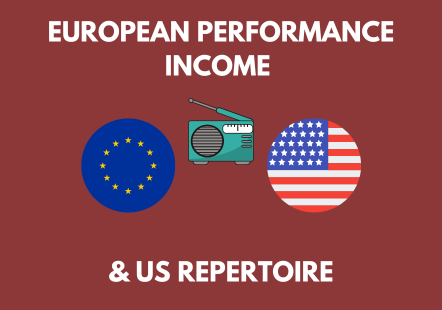5-YEAR ANNIVERSARY OF THE « RAAP » RULING, TIME TO SEE CONCRETE SOLUTIONS SAY EUROPEAN MUSIC BODIES AND EU PARLIAMENTARIANS

Brussels, 8th September 2025
On the fifth anniversary of the EU Court’s « RAAP ruling », heads of European music industry bodies and EU parliamentarians agree this anniversary is a new opportunity to commit to concrete action and renew their call on the European Commission to come forward with a legislative fix.
Due to a technicality in the EU law which the Court was asked to interpret, the 2020 ruling put into question a long-standing principle under international copyright law, the principle of material reciprocity, which allows signatory countries to “reciprocate” against other countries who do not protect certain rights – in this case the right for music performers and producers to be paid when their works are played on terrestrial radio or in public spaces.
This matters because, among other things, the USA – by far the largest music market in the world – does not have these rights in its national law and does not collect for recordings played on terrestrial radio or in shops.
The result is that, unless the European Commission finally steps in to clarify the EU rules in line with international copyright treaties, Europe will see a massive value transfer. The EU Court indicated in its ruling that it was up to the EC to legislate, but so far nothing has moved past the stage of studies and discussions.
If nothing is done, an estimated €1.25bn to €1.5bn of European music performers and producers’ income will be lost over the next 10 years. Three European countries (the Netherlands, Denmark, Sweden) have already changed their laws and their governments all call on the European Commission to fix the EU legislation so they can go back to applying reciprocity.
On the anniversary of the ruling, the heads of leading European music industry bodies and influential members of the European Parliament are coming together to renew their call on the European Commission to clarify the principle of reciprocity urgently through legislation and also repeat their call for the EU to apply trade pressure to encourage the USA and other countries who do not have these rights to raise the level of protection in their national laws.
Helen Smith, Chair of IMPALA, the European association of independent music companies, said : “We are looking to the EU to address this swiftly in a balanced way. The solution is clarifying that reciprocity can apply, while allowing individual countries to keep paying the US and other third countries with lower protection levels if they choose to. Ultimately, we want those rights to be introduced in the US, and the leverage offered by reciprocity can help achieve this objective. Right now, that leverage is lost and the European recorded music sector is hurting. Inaction from the EU goes against the whole principle of reciprocity, which is to increase the level of rights protection across the world”.
Will Maas, Chairman of Ntb/Kunstebond, the Dutch Musicians’ Union, added: “In the Netherlands, the fourth biggest music market in Europe, we have first-hand experience of what it means not to be able to rely on reciprocity. Since 2021, we have been paying the US, which represents over 30% of the revenues distributed, and because tariffs have not been increased to the level which would have allowed to balance out those additional distributions, performers and rightsholders of so-called “Rome protected repertoire” (nb: repertoire protected under the Rome Convention) have lost out on an estimated €32m of income between 2021 and 2024, which also means less investment in Dutch music and artists”.
MEP Emma Rafowicz, Vice-Chair of the European Parliament’s Culture Committee, commented : “The European music sector is suffering, and five years is too long. In the context of heightened trade tensions with the US, it makes all the more sense to have this safeguard in place which would ensure that the EU and its member states can keep offering a high level of rights protection to their artists and producers and encourage third countries like the USA to do the same”.
MEP Bogdan Zdrojewski, Vice-Chair of the European Parliament’s Culture Committee and former Minister of Culture of Poland, concluded : “The European Parliament has been monitoring this discussion for years now and it’s time for the European Commission to propose a lasting and balanced solution. This goes to the heart of Europe’s ability to safeguard its cultural diversity, this is a matter of principle, fairness and good sense.”
About IMPALA
IMPALA was established in 2000 and now represents over 6000 independent music companies in Europe. 99% of Europe’s music companies are small, micro and medium businesses and self-releasing artists. Known as the independents, they are world leaders in terms of innovation and discovering new music and artists – they produce more than 80% of all new releases and account for 80% of the sector’s jobs. IMPALA’s mission is to grow the independent music sector sustainably, return more value to artists, promote diversity and entrepreneurship, improve political access, inspire change, and increase access to finance. IMPALA works on a range of key issues for its members and started a new co-funded work programme as an EU cultural network in 2025. IMPALA runs various award schemes and has a programme aimed at businesses who want to develop a strategic relationship with the European independent sector – Friends of IMPALA

